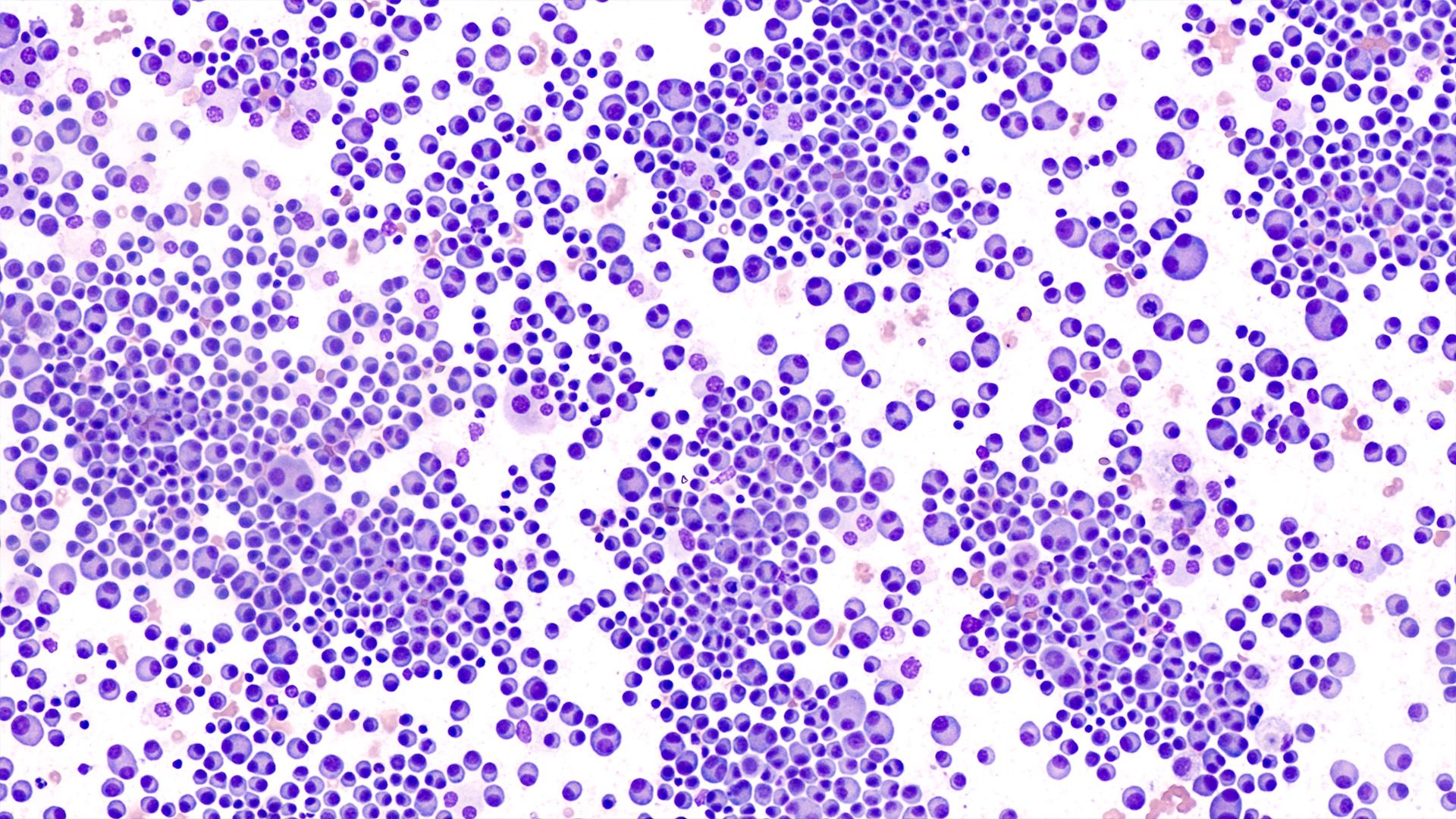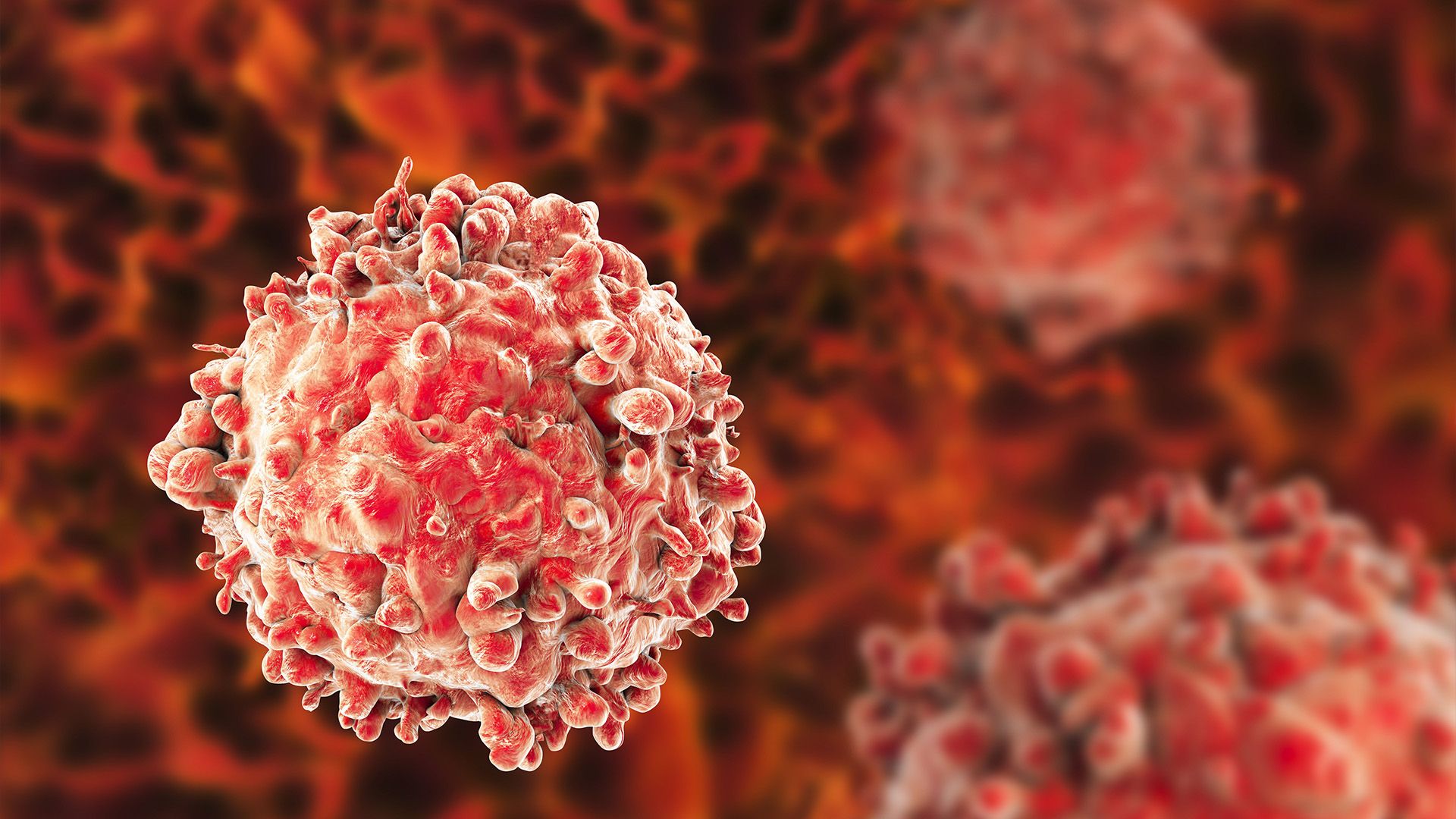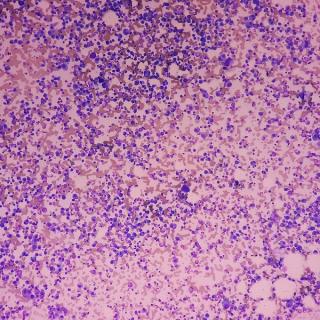
Hematology
Latest News
Video Series
Latest Videos
Podcasts
More News

Six-month complete response with frontline axicabtagene ciloleucel predicts long-term survival in patients with high-risk large B-cell lymphoma.

Phase 3 trial results demonstrated a significant benefit with the BTK inhibitor pirtobrutinib vs bendamustine plus rituximab in patients with untreated CLL/SLL.
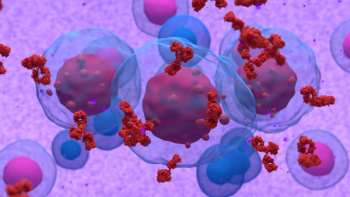
Subcutaneous bispecific antibody cevostamab demonstrated early efficacy and safety in patients with relapsed or refractory multiple myeloma.
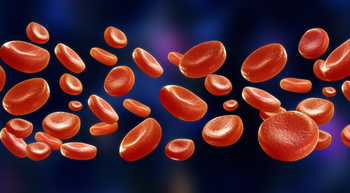
Pirtobrutinib demonstrated noninferior response rates to ibrutinib and showed a trend toward survival benefit in patients with CLL/SLL.

Patients with AML receiving azacitidine and venetoclax had significantly higher quality of life than those receiving intensive induction chemotherapy.
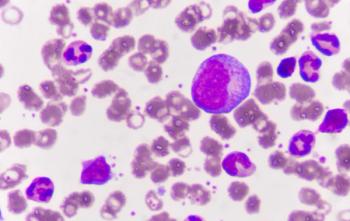
Blinatumomab/ponatinib increased efficacy, and response rates were improved in patients with Philadelphia-positive acute lymphoblastic leukemia.

The addition of epcoritamab to R2 significantly reduced the risk of death or disease progression in patients with relapsed/refractory follicular lymphoma.

Older patients with newly diagnosed diffuse large B-cell lymphoma receiving epcoritamab plus R-mini-CHOP achieved deep responses with manageable safety.

Shifting to a higher and less frequent dose of axatilimab was tolerable and feasible in patients with chronic GVHD.

KRd demonstrated higher PFS, deeper response, and greater MRD negativity compared with VRd in newly diagnosed multiple myeloma.
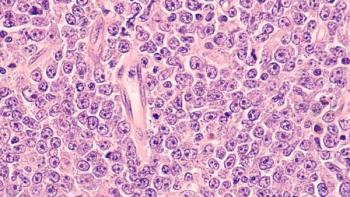
The combination of odronextamab with CHOP chemotherapy showed early efficacy in patients with untreated diffuse large B-cell lymphoma.

Nearly one-third of families of children with acute lymphoblastic leukemia developed “catastrophic” financial toxicity during the patient’s treatment.

Higher LDH levels were linked with poorer survival outcomes in patients with relapsed and refractory multiple myeloma who received elranatamab.

Fixed-duration venetoclax combined with obinutuzumab or ibrutinib produced noninferior PFS compared with continuous ibrutinib monotherapy.

The FDA has approved the use of lisocabtagene maraleucel in patients with relapsed/refractory marginal zone lymphoma.

The FDA has approved pirtobrutinib treatment for adults with relapsed/refractory CLL/SLL who have received prior treatment with a covalent BTK inhibitor.

Catch up on recent regulatory decisions by the FDA in oncology, including actions in lung, hematologic, genitourinary, and gastrointestinal cancers.
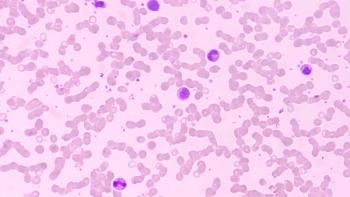
Elizabeth Hubert, APRN, explains how to treat patients receiving luspatercept for low-risk myelodysplastic syndromes.

The FDA granted standard approval to epcoritamab monotherapy and epcoritamab plus lenalidomide and rituximab for relapsed/refractory follicular lymphoma.
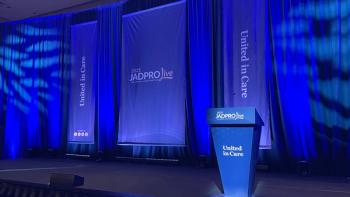
Here are 5 presentations that oncology APPs should know about, from patient management to practice management.

The FDA has approved ziftomenib for relapsed or refractory acute myeloid leukemia harboring NPM1 mutations with no alternative treatment options.

The FDA has approved subcutaneous daratumumab and hyaluronidase-fihj for use in patients with high-risk smoldering multiple myeloma.

Treatment for patients with R/R multiple myeloma should be based on the individual patient and their history, said Lisa Hwa Christenson, DNP, APRN, CNP.

Among lymphoma survivors, a multidisciplinary intervention program had a beneficial effect on fatigue and aspects of health-related quality of life.

The addition of navtemadlin to ruxolitinib for patients with myelofibrosis who are JAK inhibitor-naive with suboptimal response to ruxolitinib will be evaluated in the phase 3 POIESIS trial.



